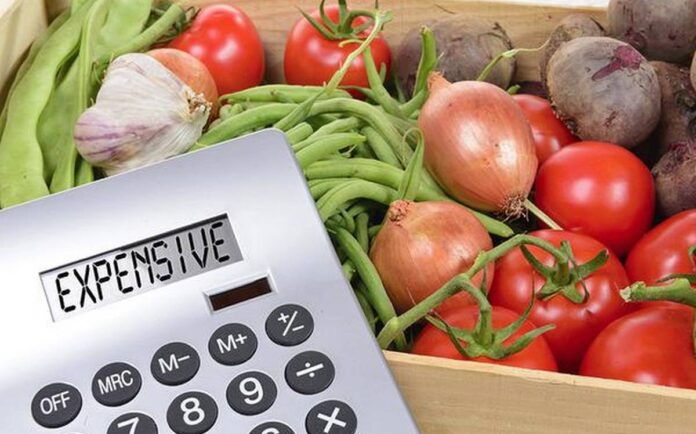ISLAMABAD: According to the Pakistan Bureau of Statistics (PBS), the inflation measured by the Sensitive Price Indicator (SPI) increased by 0.33 percent for the week ending on July 13, 2023.
This rise was primarily driven by higher prices of food items, including sugar (5.22 percent), wheat flour (4.23 percent), gur (3.68 percent), salt powdered (2.17 percent), and eggs (1.34 percent).
On a year-on-year basis, there has been a significant increase of 28.96 percent in overall inflation. This upward trend is mainly attributed to substantial price hikes in wheat flour (129.84 percent), cigarettes (111.74 percent), gas charges for q1 (108.38 percent), tea lipton (101.56 percent), rice basmati broken (76.74 percent), rice irri-6/9 (73.88 percent), potatoes (61.67 percent), gents sponge chappal (58.05 percent), sugar (57.91 percent), chicken (56.06 percent), salt powdered (53.49 percent), gur (48.30 percent), and bread (46.86 percent). However, certain items have experienced a decrease in prices, including onions (28.17 percent), electricity for q1 (14.58 percent), pulse masoor (7.54 percent), diesel (5.82 percent), LPG (1.23 percent), and vegetable ghee 1 kg (1.16 percent).
Out of the 51 items considered, during the week, the prices of 21 items increased (41.17 percent), 11 items decreased (21.58 percent), and 19 items remained stable (37.25 percent).
Some of the notable items that saw an increase in their average prices during the week compared to the previous week were sugar (5.22 percent), wheat flour bag 20 kg (4.23 percent), gur (3.68 percent), salt powdered (2.17 percent), eggs (1.34 percent), energy saver philips (0.81 percent), toilet soap (0.80 percent), rice basmati broken (0.77 percent), rice irri-6/9 (0.75 percent), milk fresh (0.47 percent), matchbox (0.36 percent), tea prepared ordinary (0.33 percent), garlic (0.33 percent), sufi washing soap (0.29 percent), pulse mash (0.27 percent), potatoes (0.14 percent), curd (0.14 percent), beef with bone (0.12 percent), cooked beef (0.08 percent), powdered milk nido (0.06 percent), and mustard oil (0.04 percent).
On the other hand, the average prices of some items decreased during the week compared to the previous week, including bananas (12.18 percent), tomatoes (6.35 percent), onions (5.32 percent), LPG (2.17 percent), vegetable ghee dalda/habib 2.5 kg tin each (0.85 percent), pulse moong (0.70 percent), cooking oil dalda or other similar brand (sn), 5-litre tin each (0.51 percent), pulse gram (0.46 percent), vegetable ghee dalda/habib or other superior quality 1 kg pouch each (0.36 percent), pulse masoor (0.18 percent), and chicken (0.13 percent).





Very good info
Investment is one of the best ways to achieve financial freedom. For a beginner there are so many challenges you face. It’s hard to know how to get started. Trading the Crypto market has really been a life changer for me. I almost gave up on crypto currency at some point not until I got a proficient trader Bernie Doran, he gave me all the information required to succeed in trading. I made more profit than I could ever imagine. I’m not here to converse much but to share my testimony, I invested $5000.00 and got back $50,500.00 within 5 days of investment. His strategies and signals are the best and I have gained more knowledge.
If you are new to cryptocurrency. You can reach to him on Telegram: @BERNIE_FX ,through Gmail :BERNIEDORANSIGNALS@GMAIL.COM or his WhatsApp : +1424(285)0682
I found this article quite informative and detailed in explaining the recent inflation trends in Pakistan. It’s concerning to see such a significant year-on-year increase in inflation, particularly in essential items like wheat flour and basic utilities.
The breakdown of price changes for various goods gives a clear picture of the impact on everyday expenses. It’s essential for policymakers to address these rising prices to ensure the stability of the economy and the well-being of the people.
This rise was mainly driven by higher prices of food items, including sugar, wheat flour, gur, salt powdered, and eggs.